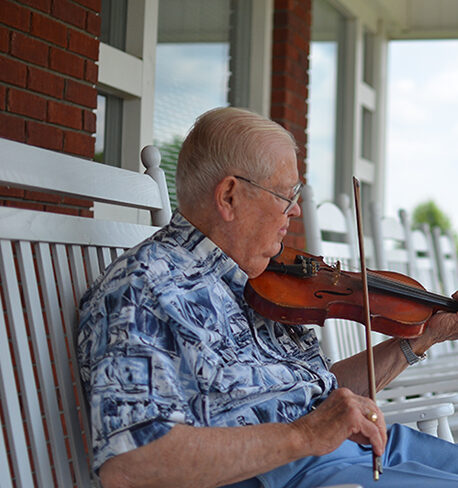It might also be a time when families start to wonder if their loved one may need to consider moving to a senior living community.
Senior Adults are Resilient, but They Still Need Help Coping
Your senior loved one has probably lived through many transitions throughout his or her lifetime already. This is one more in a long line of life-changing events.
However, even though older adults are resilient, they still need help with the transition to a senior living community. That’s often true even if they don’t mind the upcoming change.
Some Older Adults Don’t Mind the Idea of Transitioning
For many seniors, this type of transition is a welcome and natural change. They may even look forward to having the essentials of daily living taken care of for them. This is especially true if they have been secretly struggling to complete chores and errands for many months before anyone noticed.
Plus many older adults anticipate enjoying the array of activities and events offered in their new community.
Finally, the opportunities for social engagement are another attractive feature of senior living communities for many older Americans. As people age, they often lose contact with their former friends and family members due to loss, mobility issues, or cognitive impairment that makes socialization difficult. Being surrounded by peers who share similar struggles can provide the emotional support a senior often needs.
Helping Your Senior Loved One Make the Transition
Even if your loved one is comfortable with the transition to senior living and agrees wholeheartedly that it’s going to be a welcome change, you’ll still need to help prepare him or her for the change.
Here are a few tips:
- Be there to talk. Anyone who’s about to experience a big change will need to talk about it. This usually needs to take place over time: days, weeks or even months. Simply making yourself available to listen can makes all the difference in the world.
- Validate his or her concerns. Even in the best of circumstances, when everyone is in agreement about the move, your senior loved one will have questions and concerns. It would be a mistake to downplay his or her fears by simply offering blind reassurance that everything will be wonderful. Be honest about the transition but stress that you’ll work through it together.
- Get everyone involved. One fear many older adults have as they make this move is that they’ll somehow become cut off from what’s so important to them: their former community and their friends and family. Get more people involved in preparing him or her for the move. That way, you’re showing that the support network is still there.
- Find out what helps your senior loved one cope. Everyone copes with change in a different manner. If your senior loved one likes to keep busy when they are working through stress, then make sure they have plenty to do before and after the move. If your loved one prefers some alone time to work things out, let the staff members at their senior living community know.
Five Star Senior Living – Senior Living at its Best
Transitions can be tough, but these tips should help the move go smoothly. If you and your senior loved one have decided it’s time for a move to a senior living community, we invite you to visit one of the Five Star Senior Living communities near you.
Contact Us Today
"*" indicates required fields

